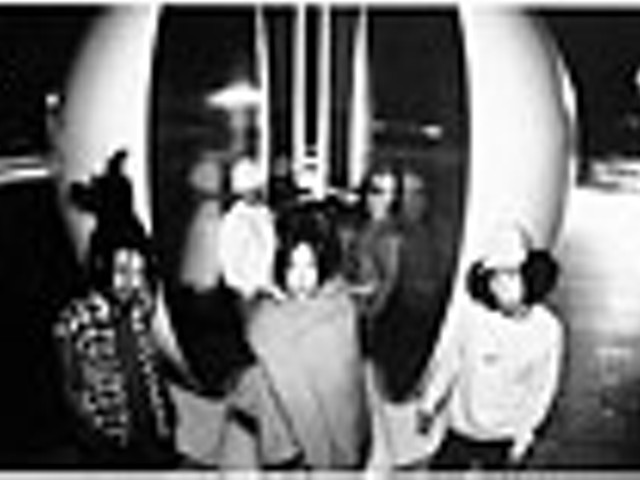"A song is not a poem; it’s a song. It’s a third thing. It has music and it has words, and it also has meaning which nonvocal music does not have," says Ned Rorem by phone from Massachusetts. Rorem’s ideas on the subject come from more than half a century of setting words to music, in the process creating the largest body of vocal works by an American in the classical tradition.
Our much publicized love affair with the pop song, from George Gershwin to Chuck Berry to Patti Smith, tends to obscure a native lineage of 20th century composers – such as Charles Ives, Samuel Barber and John Cage – who’ve used poetry as a foundation for musical magic. And though Rorem is among the most prolific of this breed, his care for the sanctity of his sources is unmistakable.
"I think there’s a certain chutzpah about a composer taking a poem and presuming to improve on it or add to it by setting it to music, and I think that the least the composer can do is leave the poem intact ...," he adds, not mincing words. His own settings of texts by Walt Whitman, Emily Dickinson, W.H. Auden and postmoderns like Frank O’Hara and John Ashbery – among dozens of others – demonstrate this acute sensitivity to a poem’s needs as well as his unflappably strong lyrical sense.
As composer-in-residence at this year’s Great Lakes Chamber Music Festival, Rorem, 76, Pulitzer Prize winner, esteemed author-diarist and America’s master of the art song, is represented in three separate programs, one of which – on June 20 – is a mini- showcase of his instrumental and vocal works. On June 17 and 18, pieces by Beethoven, Kodaly and Ravel surround his War Scenes (for voice and piano), a dramatic treatment of Whitman’s journal:
"In the case of poetry, I never ever change a word. I never add a word; I never subtract a word, the way so many composers do. On the other hand, if I take the prose of Whitman’s diary, I’m not proud of it, but I take whatever I want, and I put it in any order that I want. And in these War Scenes I took fragments of his Civil War diaries and set them to music."
The festival’s June 19 concert presents Rorem’s Santa Fe Songs (for voice, violin, viola, cello and piano) based on 12 poems by New Mexico poet Witter Bynner. Rorem, who has a precise idea of the poetic strategies he prefers, considers Bynner’s work "accessible and not unlike Frank O’Hara ... kind of zany and just slightly off-center so that there’s an added touch of madness that works."
Though Rorem’s music is most definitely modern, his choice of any particular poem always depends on its accessibility. "There has to be something to sing about. All music is theater. In fact all art is ... so is all poetry, in one way or another, in the sense that it’s real life condensed and then meant for an audience."
As a child, Rorem showed a talent for both words and music, but what he calls "American specialization" prevailed, sending him down the road to melody, eventual studies at the Juilliard School and a fellowship with Aaron Copland. But during a long stay in Paris (1949-57), he cultivated both literary and musical contacts.
Back in the States, he collaborated on song cycles and operas with New York School poets Ashbery, O’Hara, Kenneth Koch, James Schuyler and Kenward Elmslie. They were notorious avant-gardists, but a playful, almost romantic strain ran through their work, and Rorem still prefers their inventiveness and intense feeling to their difficulty.
"I do think, however, that there’s no one inevitable way of setting a poem ... And I think that it’s not flattering to a poet to assume there’s only one way of setting his poem. It’s a very personal thing, more than any other music."
In its sixth year, the Great Lakes Chamber Music Festival continues to perk up metro ears with its innovative composer-in-residence programming, and by featuring a choice soloist along with excellent regulars like Paul Katz, Ruth Laredo, Peter Oundjian, the St. Lawrence String Quartet et al. Among the usual wealth of selections, renowned pianist Gilbert Kalish will perform the "Alcotts" movement from Ives’ Concord Sonata (June 24), an American masterwork that he has recorded for Nonesuch.
Festival artistic director James Tocco deserves endless handshakes for this year’s superb lineup. Hear for yourself, every evening from June 16-26.





